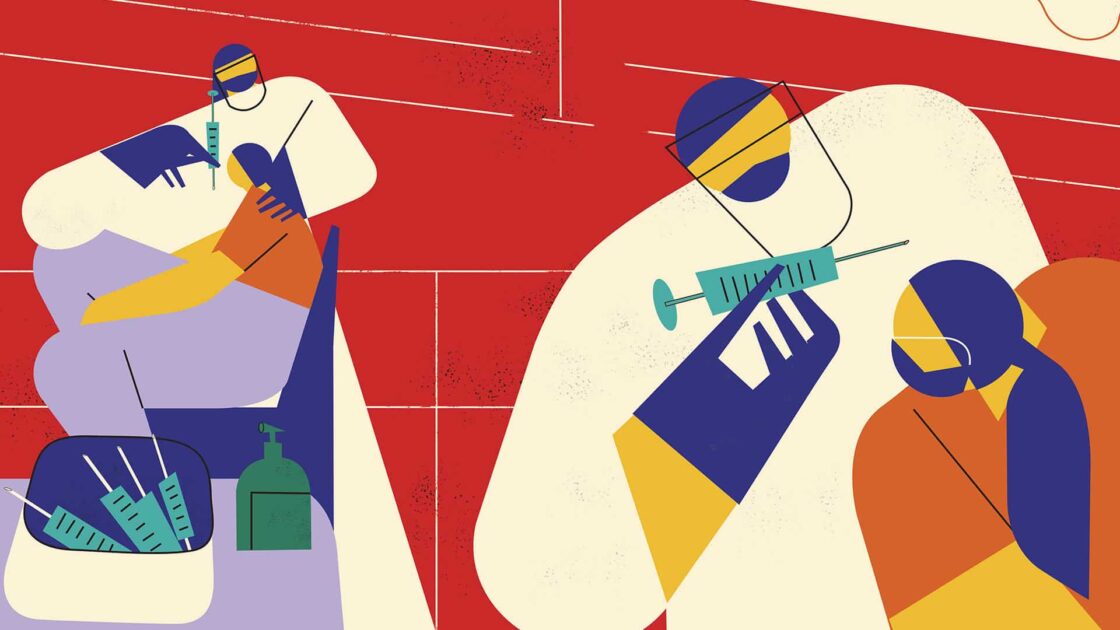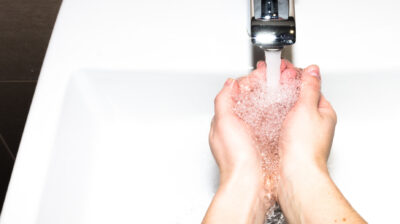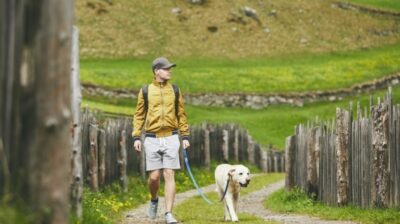How to protect yourself from COVID-19
Find out more about how COVID-19 is spread, the symptoms and how you can protect yourself and others.

COVID-19 has affected our lives in many ways. It has changed the way we work and learn, limited the time we can spend with friends and family, and put plans on hold.
Although vaccines have allowed the country to start opening up more, COVID-19 is still here, and people can still get sick. It’s important to continue following COVID-19 safety guidelines, such as keeping your distance, wearing a face covering, and washing your hands.
This will help to prevent the spread of different COVID-19 variants and avoid more people getting sick with COVID-19. People who have not been vaccinated are especially vulnerable to COVID-19.
In this article:
What is COVID-19?
COVID-19 is also known as the coronavirus. Coronaviruses are a large family of viruses that cause illness. These viruses can be transmitted between humans and animals. There is more than one type of coronavirus, including the common cold, but COVID-19 is the most recent.
Viruses have the ability to change through a process called mutation. This creates different variants of the virus. When a new variant emerges, it can sometimes give the virus certain advantages, for example making it easier to transmit or making it easier for it to survive the response from a person’s immune system. This can then increase case numbers of the virus, and make it harder to contain. Variants that have caused concern in Ireland include the Delta variant and the Omicron variant.
How does COVID-19 spread?
There are a number of ways that the virus can spread, but the most common way of becoming infected with COVID-19 is by coming into close contact with someone who has the virus.
Close contact
COVID-19 is spread through small droplets from the nose or mouth that come into the air when a person coughs, sneezes, or exhales, and it can also be passed on by talking loudly, singing or shouting. It’s possible to breathe in these droplets if you are standing close to the person who has the virus, usually when you are within one to two metres from each other.
Staying two metres apart from others can help to reduce the spread of the virus.
If someone has been diagnosed with COVID-19, the HSE will attempt to make contact with everyone that person may have been in close contact with. Close contact includes:
- Face-to-face contact
- Spending more than 15 minutes within 2 metres of an infected person
- Living in the same house as an infected person
Find out what to do if you are a close contact.
Airborne transmission
It is also possible for tiny water particles called aerosols to spread over longer distances. This means COVID-19 can also easily spread in crowded areas, or spaces with poor ventilation (air flow).
It is much safer to meet people outdoors, and indoor spaces should be kept well ventilated by opening windows to air the space out. Avoid stuffy and/or crowded spaces.
Infected surfaces
If someone who is infected with the virus coughs or sneezes, droplets can also land on objects or surfaces. If you touch these surfaces, and then touch your nose, eyes or mouth, you could catch the virus.
Becoming infected from surface transmission is a lot less common than getting it through close contact, but it is still very important to wash your hands often. Using a household disinfectant can kill the virus on surfaces.
How to protect yourself from COVID-19
There are many things we can all do to prevent the spread of COVID-19:
Getting vaccinated
Getting vaccinated is the best way to protect yourself against COVID-19. The vaccines boost your immunity to the virus, and although you can still become infected with COVID-19 if you’re vaccinated, your symptoms are less likely to be severe.
All of the vaccines approved for use in Ireland have been tested and are considered safe. It is currently recommended that you get a booster shot after three months as your immunity becomes less effective after that time.
Find out more about getting vaccinated.
Wear a face mask
When worn properly, face masks can be an effective tool to prevent someone with COVID-19 from infecting other people. This is especially important in enclosed spaces where it is harder to keep your distance from other people or where there is low ventilation (airflow).
By law, you are required to wear a face mask in certain settings, including shops, public transport, in services like hairdressers and barbers, and in other public settings.
There are a few different types of masks you can choose from, including medical masks, respirator masks (FFP2) and cloth masks.
Learn more about when to wear a face mask and the different types of masks available.
Wash your hands and use hand sanitiser
Washing your hands properly with soap regularly is an important step in preventing the spread of germs and viruses. It’s recommended that you wash your hands for at least 20 seconds. Do this throughout the day, after touching surfaces in public spaces, and before you eat or touch your face.
If you are unable to wash your hands, use hand sanitiser wherever it is available, especially in public places or on public transport.
Cover your nose and mouth when coughing or sneezing
As the virus spreads through droplets, you can protect those around you by covering your nose or mouth when sneezing or coughing. Ideally, you would cover your nose and mouth with a tissue, and then throw the tissue in the bin and wash your hands. If there are no tissues available, try coughing or sneezing into the crook of your elbow rather than into your hands.
Disinfect touched objects and surfaces
Becoming infected from touching surfaces surface is a lot less common than getting COVID-19 through close contact, but it is still important to disinfect surfaces and objects, especially if they are touched regularly. A household disinfectant can kill the virus and other germs.
Avoid touching your face
Try to avoid touching your nose, eyes or mouth. If you need to touch your face, make sure to wash your hands properly with soap and water first.





